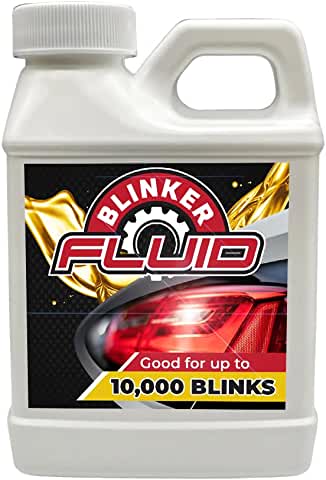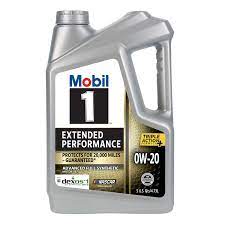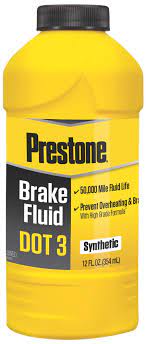What is Blinker Fluid?
Those who may be new to driving and maintaining their own vehicle will be looking to find out the best ways to go about things. A huge part of maintenance is making sure the essential fluids in the car are at the right levels and where applicable replaced as needed.
In this article we will focus on blinker fluid, what it does, where to get it and how to use it. We will also take a look at some of the other fluids as well.
What Is Blinker Fluid?
So it is likely that your dad, an older sibling or more experienced motorist than yourself has told you need to get some blinker fluid. They may have had a sly smile when they told you about it as well because they know the truth.
Alright so no more keeping you in suspense. What is blinker fluid? Well it is the same as plaid paint and the infamous long weight, it’s a prank item that does not exist. Yes, that’s right, whoever told you that you need blinker fluid is pulling your leg and deserves a pranking.
History of Blinker Fluid
Recently viral videos have been popping up of people looking for blinker fluid in the stores as their tormentors film the search. It started showing up in searches back in 2004 but likely predates this. As with all pranks we will never know who first conceived this devious prank.
Blinker fluid is actually available online to further the prank as are supposed vouchers for the product to add extra credence. It should be noted though that you should not allow anyone to pour any form of liquid into their turn signals as they are electrical and this can cause damage.

How Do Turn Signals Actually Work?
So now we have dispelled the need for so called blinker fluid lets just briefly touch on how your blinkers or turn signals actually function. So to reiterate, no fluids are involved in turn signals. These are electrical lights that are activated by the driver to indicate a right or left turn.
Electrical messages are sent down wires to one of two bulbs located on either side of the front and rear of your vehicle. These bulbs will flicker on and off to tell drivers coming toward you at both the front and rear that you intend to make a turn.
This a safety feature to warn other road users to be prepared for you to turn and hopefully avoid a collision.
What Car Fluids Do You Need?
Having established that blinker fluid does not need to be on your AutoZone or Amazon shopping list we now come to look at what you do need. I promise you, no pranks from us; these are all real fluids that your car needs for various purposes.
Motor Oil
One of the most important fluid changes that is involved with your vehicle is motor oil. As you drive around any town or city you will probably see multiple oil change places who offer fast service but this is also something you can do yourself with a little know-how and care.
Motor oil is important as a lubricant for the engine and other car systems. It makes sure that moving parts do so smoothly without undue friction and damage to the engine. It is essentially the blood of your car but unlike our blood which is cleaned by certain organs oil does not get cleaned.

So at regular intervals we need to empty out the old dirty oil and replace it with new clean oil. You may also find your oil level decreasing and need to occasionally top up the existing oil. This may indicate a leak in the system which may require a repair.
Depending on your make and model you may have to have a specific type of oil so make sure you know what type to use if you are doing so yourself. Professional oil change places will know what oil your vehicle can take and will likely give you options as well that may suit your general vehicle usage.
Coolant
This is another important fluid to the running of a car as it helps control engine temperature. If your engine overheats it can cause major damage which may cost a lot of money to repair. This mixture of ethylene glycol and water circulates around the engine leeching the heat caused by the combustion engine and taking it to the radiator.
As the coolant passes through the radiator the ridged surface allows the heat to dissipate out of the fluid and into the air. Air blowing over the radiator as you drive along also assists this cooling process. Routinely checking that your coolant levels are ample is important.
Coolant is also known as antifreeze which means if you live in a cold climate it will prevent the engine coolant from freezing. This is why you should never just replace coolant with normal water. It will freeze at a higher temperature than the ethylene glycol water mixture.
If your coolant needs to be topped off regularly you may have a leak in the system so you should get this checked out. Without enough coolant your engine can overheat and this can cause very costly damage and potentially leave you stranded at the side of the road.
Transmission Fluid
Just as oil lubricates the engine, transmission fluid does the same job for all the elements of the transmission. This system of the car is what transfers the power of the engine to the wheels in order to create forward momentum.
It is essentially a hydraulic fluid that supports shifting of gear boxes and other components. You may need to refill this fluid from time to time and you may need regular transmission flushes which can range from 30,000 to 100,000 miles depending on the vehicle.
Brake Fluid
Another important fluid is brake fluid which is essential to make sure your brakes function correctly. When driving, brake failure is something you do not want to happen. Over time use of the brakes can deplete brake fluid with a flush suggested every 30,000 miles or two years.

Steering Fluid
If your car has power steering then it will also have power steering fluid. This is what helps the system work and if it starts to get low you might note that steering becomes more difficult. It not only lubricates the steering but amplifies the pressure when you turn the steering wheel.
This is usually located in a reservoir under the hood so it is not difficult to see if power steering levels are low. You may need to top these levels up from time to time.
Windshield Washer Fluid
This is a less vital fluid as it does not really affect the working of your car but it plays a role in keeping your windshield clear. Dirt and dead bugs can accumulate on your windshield as you drive and at the touch of a button you can get a squirt of cleaning fluid that you can then use your wipers to help clear the screen.
This depletes with every use so if you live in a dusty area and need to use it frequently you may find yourself refilling this fluid more regularly.
Conclusion
There are a number of essential fluids to the working of your vehicle but one of them most certainly is not blinker fluid. If you are here prior to a visit to an auto store with the person who told you you need it you are now forewarned.
I suggest you pick up some windshield wiper fluid and a backup bottle of coolant and if they mention blinker fluid, ask them what they are talking about. Inform them that turn signals are electronics and fluid would damage them. Turn their prank into what a fool they are to suggest such a thing.
Link To or Reference This Page
We spend a lot of time collecting, cleaning, merging, and formatting the data that is shown on the site to be as useful to you as possible.
If you found the data or information on this page useful in your research, please use the tool below to properly cite or reference Tow Ratings as the source. We appreciate your support!
-
<a href="http://towratings.net/blog/what-is-blinker-fluid/">What is Blinker Fluid?</a>
-
"What is Blinker Fluid?". Tow Ratings. Accessed on July 27, 2024. http://towratings.net/blog/what-is-blinker-fluid/.
-
"What is Blinker Fluid?". Tow Ratings, http://towratings.net/blog/what-is-blinker-fluid/. Accessed 27 July, 2024
-
What is Blinker Fluid?. Tow Ratings. Retrieved from http://towratings.net/blog/what-is-blinker-fluid/.